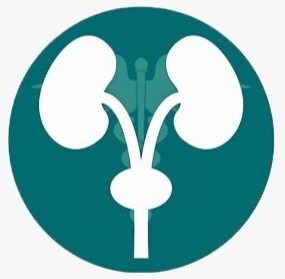Prostate cancer is one of the most common cancers affecting men worldwide, including in India. While prostate enlargement (BPH) is common with ageing, it is important to differentiate it from prostate cancer, which requires timely diagnosis and specialized treatment. Early detection through screening plays a crucial role in improving survival rates and long-term outcomes.
At Dr. Arif Akhtar’s Urology Clinic in Sector 56, Gurgaon, patients receive advanced prostate cancer screening, diagnosis, and treatment using evidence-based protocols and modern technology. Early diagnosis not only improves treatment success but also helps men maintain a better quality of life.
Symptoms of Prostate Cancer
Prostate cancer may remain silent in its early stages. When symptoms appear, they may include:
- Frequent urge to urinate, especially at night
- Weak or interrupted urine stream
- Difficulty starting or stopping urination
- Blood in urine or semen
- Erectile dysfunction
- Pelvic pain or lower back pain (in advanced stages)
If you experience any of these symptoms, early evaluation by a urologist is strongly recommended.
Prostate Cancer Screening in Gurgaon
Early detection is the key to successful prostate cancer treatment. Screening helps identify cancer before symptoms develop.
PSA (Prostate-Specific Antigen) Blood Test
The PSA test measures PSA levels in the blood. Elevated PSA levels may indicate prostate cancer, but they can also be caused by benign prostate enlargement or infection. A raised PSA does not confirm cancer and may require further evaluation such as imaging or biopsy.
Digital Rectal Examination (DRE)
During a DRE, the doctor gently examines the prostate through the rectum to assess size, texture, and any abnormal lumps that may suggest cancer.
Who Is at Higher Risk of Prostate Cancer?
Prostate cancer is more common in:
- Men above 50 years of age
- Individuals with a family history of prostate or breast cancer
- Men with persistent urinary symptoms
- Those with obesity or a sedentary lifestyle
If you belong to a higher-risk group, regular PSA testing and DRE are advised under expert guidance. Dr. Arif Akhtar is a leading prostate cancer surgeon in Gurgaon and Delhi NCR with extensive experience in early diagnosis and treatment.
Prostate Cancer Treatment Options in Gurgaon, Delhi NCR
Prostate Cancer Treatment depends on the stage of cancer, age, overall health, functional status, and patient preference. Options include:
Active Surveillance
Careful monitoring with regular PSA tests, imaging, and biopsies. Suitable for slow-growing, low-risk cancers.
Watchful Waiting
A palliative approach focused on symptom control and quality of life, often recommended for elderly or medically unfit patients.
Radical Prostatectomy (Open / Laparoscopic / Robotic)
Surgical removal of the prostate gland. Minimally invasive and robotic techniques offer faster recovery and excellent cancer control in selected patients.
Radiotherapy
High-energy radiation used to destroy cancer cells or shrink tumors.
Hormonal Therapy
Reduces testosterone levels, which fuel prostate cancer growth. Includes:
- Medical hormonal therapy
- Surgical castration (orchiectomy)
Targeted / Molecular Therapy
Uses advanced drugs that specifically target cancer cell pathways.
Chemotherapy
Used in advanced or metastatic prostate cancer to slow disease progression.
Survival Rate & Life After Prostate Cancer
Prostate cancer generally has a good prognosis when detected early. Many patients live 8–13 years or longer, often leading near-normal lives after treatment. With timely diagnosis and expert care, prostate cancer outcomes are significantly better compared to many other cancers.
Why Choose Dr. Arif Akhtar for Prostate Cancer Treatment in Gurgaon?
- Experienced urologist & prostate cancer surgeon
- Expertise in laparoscopic and minimally invasive prostate surgery
- Comprehensive screening, staging, and personalized treatment planning
- Compassionate, patient-focused approach
- Clinic located in Sector 56, Gurgaon, easily accessible from Delhi NCR
Book a Consultation
If you are experiencing urinary symptoms or are at risk of prostate cancer, early evaluation can be life-saving. Dr. Arif Akhtar offers comprehensive prostate cancer screening and treatment in Gurgaon, ensuring accurate diagnosis and the most appropriate treatment for every patient.
FAQ
What are the early signs of prostate cancer?
Early prostate cancer usually has no symptoms, which is why regular check-ups are important. Some men may notice difficulty urinating, weak urine flow, frequent urination at night, or blood in urine or semen. Visiting a urologist in Gurgaon like Dr. Arif Akhtar helps detect prostate cancer early when it is most treatable.
Is prostate cancer curable?
Yes, prostate cancer is curable, especially when diagnosed in the early stages. Treatment may include surgery, radiation therapy, or active monitoring based on the stage and patient health. Consulting an experienced urologist in Gurgaon ensures the right treatment plan and the best chances of recovery.
When should I consult a urologist for prostate problems?
Men over 50, or those with a family history of prostate cancer, should get regular screenings. You should consult a urologist in Gurgaon if you experience frequent urination, weak urine flow, difficulty emptying the bladder, pelvic pain, or blood in urine. Early consultation can help detect prostate cancer and other prostate problems sooner.
What treatment options does Dr. Arif Akhtar provide for prostate cancer?
Dr. Arif Akhtar, a leading urologist in Gurgaon, provides advanced treatment for prostate cancer including laparoscopic surgery, robotic-assisted surgery, and personalized medical care. These modern techniques ensure precision, faster recovery, and better outcomes while focusing on patient safety and long-term health.
What are the advantages of robotic surgery for prostate cancer?
Robotic-assisted prostate surgery offers more precision, smaller incisions, faster recovery, and less pain compared to traditional surgery. Under the expertise of Dr. Arif Akhtar, leading urologist in Gurgaon, patients get excellent outcomes.
Looking for the best urologist in Gurgaon for prostate or kidney problems? You can easily find Dr. Arif Akhtar’s clinic on Sector 56, Gurgaon, Haryana


